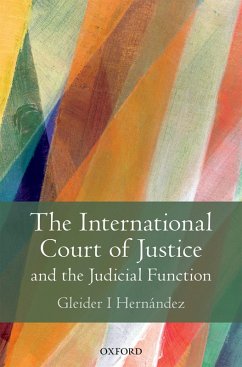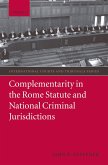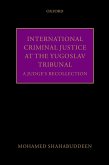This book evaluates the concept of the function of law through the prism of the International Court of Justice. It goes beyond a conventional analysis of the Court's case law and applicable law, to consider the compromise between supranational order and state sovereignty that lies at the heart of its institutional design. It argues that this compromise prevents the Court from playing a progressive role in the development of international law. Instead, it influences the international legal order in more subtle ways, in particular, in shaping understanding of the nature or form of the international legal order as a whole. The book concludes that the role of the Court is not to advance some universal conception of international law but rather to decide the cases before it in the best possible way within its institutional limits, while remaining aware of law's deeper theoretical foundations. The book considers three key elements: firstly, it examines the historical aspects of the Court's constitutive Statute, and the manner in which it defines its judicial character. Secondly, it considers the drafting process, the function of a dissenting opinion, and the role of the individual judge, in an attempt to discern insights on the function of the Court. Finally, the book examines the Court's practice in regard to three conceptual issues which assist in understanding the Court's function: its theory of precedent; its definition of the 'international community'; and its theory on the completeness of the international legal order.
Dieser Download kann aus rechtlichen Gründen nur mit Rechnungsadresse in A, B, BG, CY, CZ, D, DK, EW, E, FIN, F, GR, HR, H, IRL, I, LT, L, LR, M, NL, PL, P, R, S, SLO, SK ausgeliefert werden.









